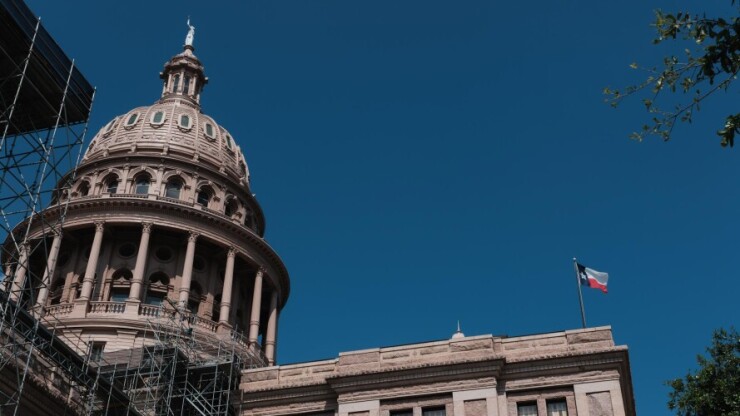
A bill aimed at restraining property tax revenue increases for Texas cities and counties heads to a legislative conference committee after the Senate on Tuesday rejected major changes the House made to the measure.
The House on Monday
The Senate version, which was last passed by the chamber on Aug. 19, would
A House amendment expanded the bill to include all Texas cities and counties after some lawmakers complained about its limited reach.
"Less than 5% of Texas cities are affected by this bill as it is, including none of the cities that I represent," Republican State Rep. Brent Money, the amendment's sponsor, said. "That means that even as meager a property tax bill as this is, none of my citizens get relief under the existing bill."
A subsequent House amendment reduced the growth rate to 1% only for local governments with populations of 75,000 or more, while exempting their public safety-related expenditures from the lower limit.
The Texas Municipal League pushed for an exemption in the House version of the Senate bill given that 51% of cities' general fund expenditures are allocated to police, fire, and emergency medical services. The group noted voters in some cities
Another House amendment added municipal utility districts, which finance water and other infrastructure for new or growing developments using property taxes, to the legislation.
Bill sponsor Republican State Sen. Paul Bettencourt told the Senate Tuesday night the amendments "are going to have to come off or be substantially changed." The chamber appointed members to a conference committee to hash out differences.
The House selected its conferees on Wednesday.
Limiting property taxes was included on special session agendas by the governor in an effort to prevent local governments from eroding $51 billion in state-funded tax relief in the upcoming biennium.





